The first time you get into a fight in Kenshi, you’ll notice one thing in a matter of seconds: you just got served, and it was bad.
This isn’t a case of bad game design, so give Kenshi a chance to show you how it works. Haul your bloody carcass up out of the dust, hobble to town, and buy some bandages to patch yourself up. Once you’re feeling better, we’ll show you how to do ever so slightly better next time.
There are (Almost) No Shortcuts
There’s only one way to skip a buttload of hard training, and that’s with about 10,000 Cats. You can hire a Warrior with 20 ranks in every melee combat skill (they show up randomly in bars), but if you can’t spare that kind of cash, you’ll have to learn the hard way.
First of all, you will get pummeled dozens of times before you even begin to be able to hold your own in a fight. You (the player) don’t suck, I promise. Every time you get knocked out, but not killed, your toughness and your KO modifier both increase.
What does that mean? Well, when you take a beating and survive, you’ll be a little bit harder to knock out next time (after you’ve fully recovered). Resist the temptation to hammer that F9 key every time you get your clock cleaned; it’s all part of the learning process, and you’ll be stronger for it in the long run.
Practice, Practice, Practice
Much like real life, wailing on a mannequin won’t turn you into a heavyweight champion overnight, but it’s a good place to start. Training dummies can increase your melee attack skill (but not individual weapon skills) to about rank 5, and they’re useless once your skills rise higher than that, so you might as well take advantage of them while you can.
Once you’ve built your first settlement, set aside a few iron plates to make a training dummy (which you first need to unlock at a research bench). Go to town on the dummy for a few minutes until you hit rank 5, at which point you’ll be kinda, sorta effective against a real opponent.
Picking a Real Fight
Once the training dummies have done all they can do for you, roam around near a major city until you find hungry or scrawny bandits. By now, your odds against a single one of them are about 50/50, but these thugs roam in huge packs. I don’t need to explain what will happen if you start swinging your rusty iron bar at ten of them.
Instead, play it smart. Get close enough to make them mad, then hightail it for the town gates. The guards don’t take kindly to bandit scum, and will lay waste to them in short order, giving you an opportunity to circle around and practice on one or two bandits once they get split off from the main horde.
Again, don’t get too discouraged if you’re still losing fights at this point. You are getting tougher, and provided you’re giving yourself ample time, food, medicine, and rest to heal between fights, your combat stats will steadily improve.
Know When to Block (and When Not to)
In the lower-right corner of your screen, where all the toggle boxes are for various behaviors, you’ll see options like “passive,” “block,” and “ranged.” These options tell your characters to behave in certain ways whenever possible.
Passive characters will avoid combat at all costs, and are less likely to be targeted by criminals when they come into range. Ranged characters (if they have a ranged weapon) will always try to stay at a distance equal to its maximum effective range; this setting is obviously more effective if you have melee fighters to pull aggro.
Taunting enemies will make them mad, and encourage them to gang up on you (use with extreme caution). Finally, blocking is a great way to not die. While in block mode, a character will gain +20 melee defense, but will never attack. This is a good way to buy time if help is on the way, or if you need to drop stuff so you can run away faster.
However, not eating dirt is not always the optimal outcome (weirdly enough). Recall that your toughness and KO resistance increase when you take damage. Well, they increase faster the more damage you take. So blocking keeps you alive longer, but doesn’t train your abilities as well. If you really need serious amounts of combat XP, consider dropping your guard and taking it on the chin (as long as you’re pretty sure you’ll just be knocked out and not utterly vaporized).
Make Some Friends (or Buy Them)
Before too long, you’ll come to realize that there are other ways to even the odds a little. If you’ve been gaining some sage wisdom from our money-making guide, before too long you should have enough cash rattling around in your bag to enlist some help.
Workers and Warriors hang out in bars in every major town, and most of them are for hire. Workers tend to be request a one-time payment of about 3,000 Cats, but all their skills start at rank 0. Warriors will demand roughly three times as much, but they come with well-developed battle skills; it’s up to you to decide whether fighting or crafting and farm labor is more important to you in the beginning.
For detailed information on building and managing a squad of wasteland wanderers (which can eventually grow up to 30 members), be sure to check out our guide on that very topic.
In the beginning, though, think very carefully about your needs and your resources, and don’t go too crazy with hiring several helpers at once. Each person you recruit needs to eat and needs to be healed after combat, and bigger groups draw more attention outside the city walls. Build your squad slowly over time and train each member thoroughly in a few select skills for the best long-term results.
Finally, you can also hire mercenaries (also found in bars) as bodyguards to accompany you, or to guard your settlements. You get 8-10 of them for the same price as a permanent party member, precisely because they’re not permanent; their contracts will expire in a day or two.
Mercenaries are especially useful as defense against bandit raids, which can utterly devastate your camp and kill your whole party. (The guys circled in red are really, really bad news.) Fortunately, the game gives you a generous heads-up when a raid is closing on your property—usually long enough to run back to town and bring back some mercenaries, if need be.
If you ever see that message after a bandit raid, pat yourself on the back and go have a beer. Surviving your first raid is enormously difficult, and it’s a sure sign that you’re on the right path.
Live Today, Fight Tomorrow
There’s no shame in running. Sometimes, a battle will clearly be unwinnable. If enemies are strong enough to outright kill you, make a break for it. Even if only one squad member manages to escape, they can return to the area and revive everyone else once the enemies have dispersed.
Above all else, be conservative. Don’t engage in fights you’re not reasonably sure you can win, or at least survive. With patience and regular training, you’ll eventually be able to go toe to toe with the wasteland’s worst outlaws.
—
There you have it! Check out our other Kenshi guides here at GameSkinny!

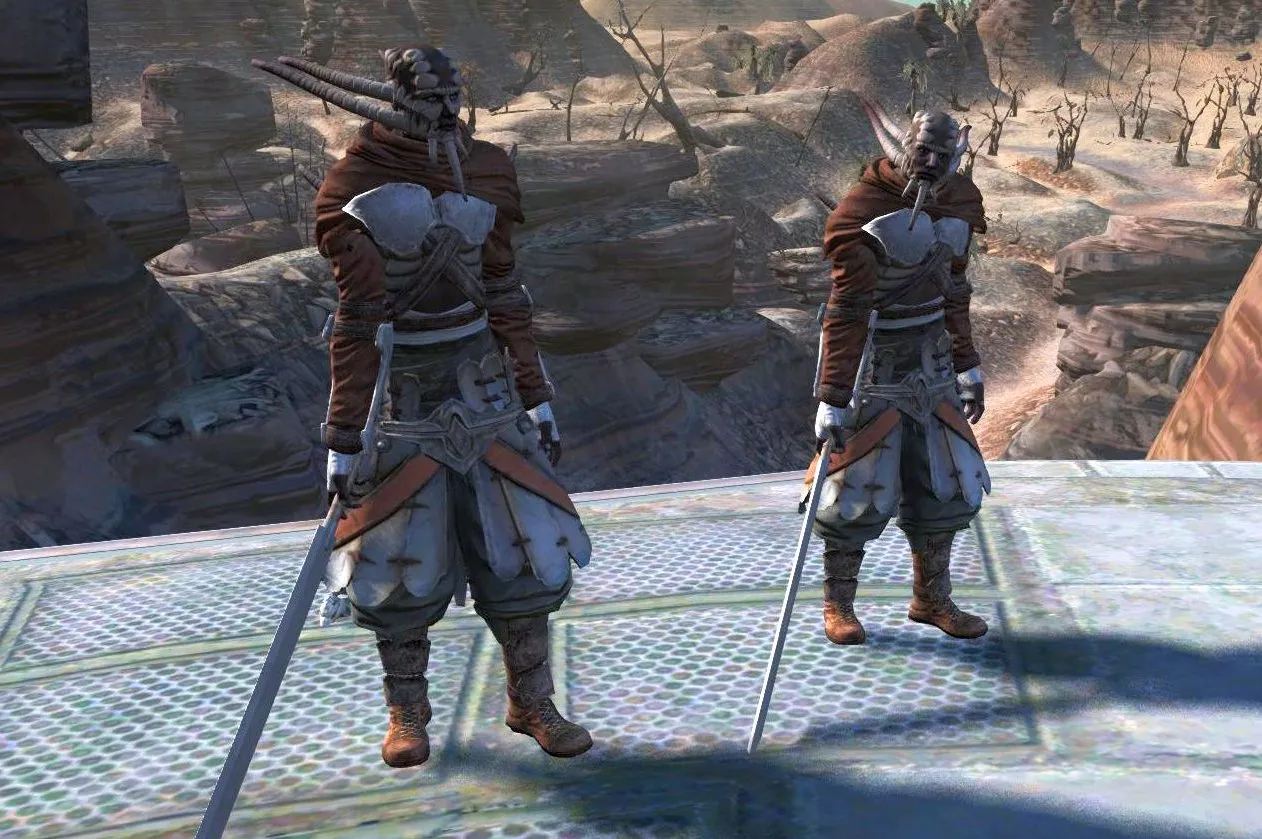
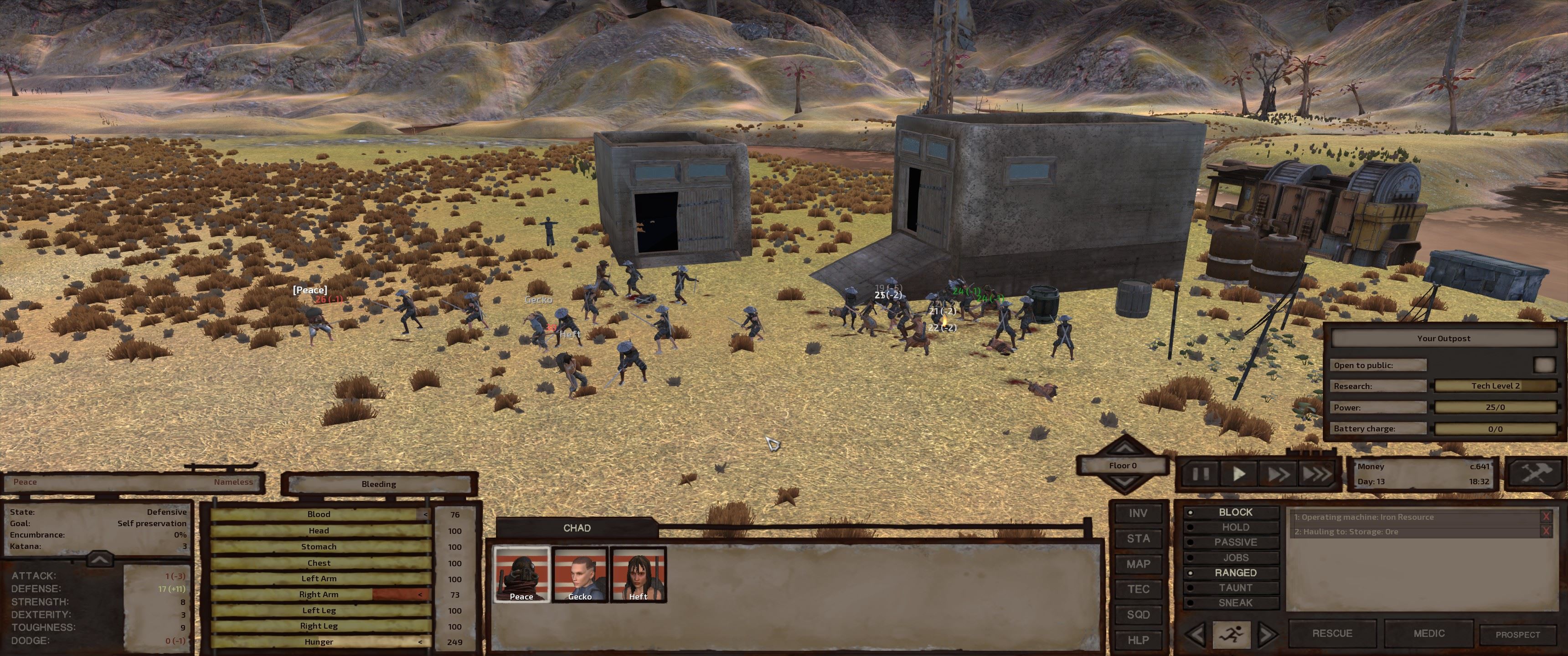
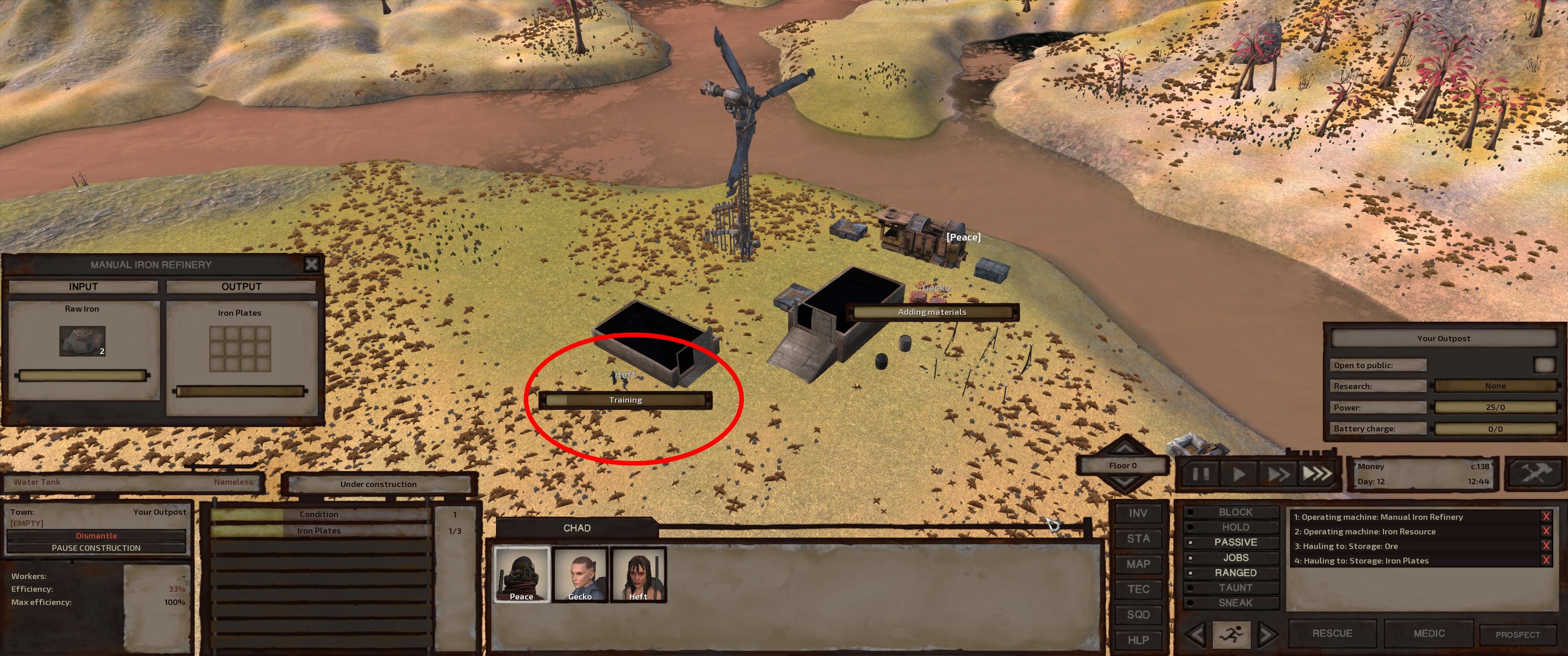

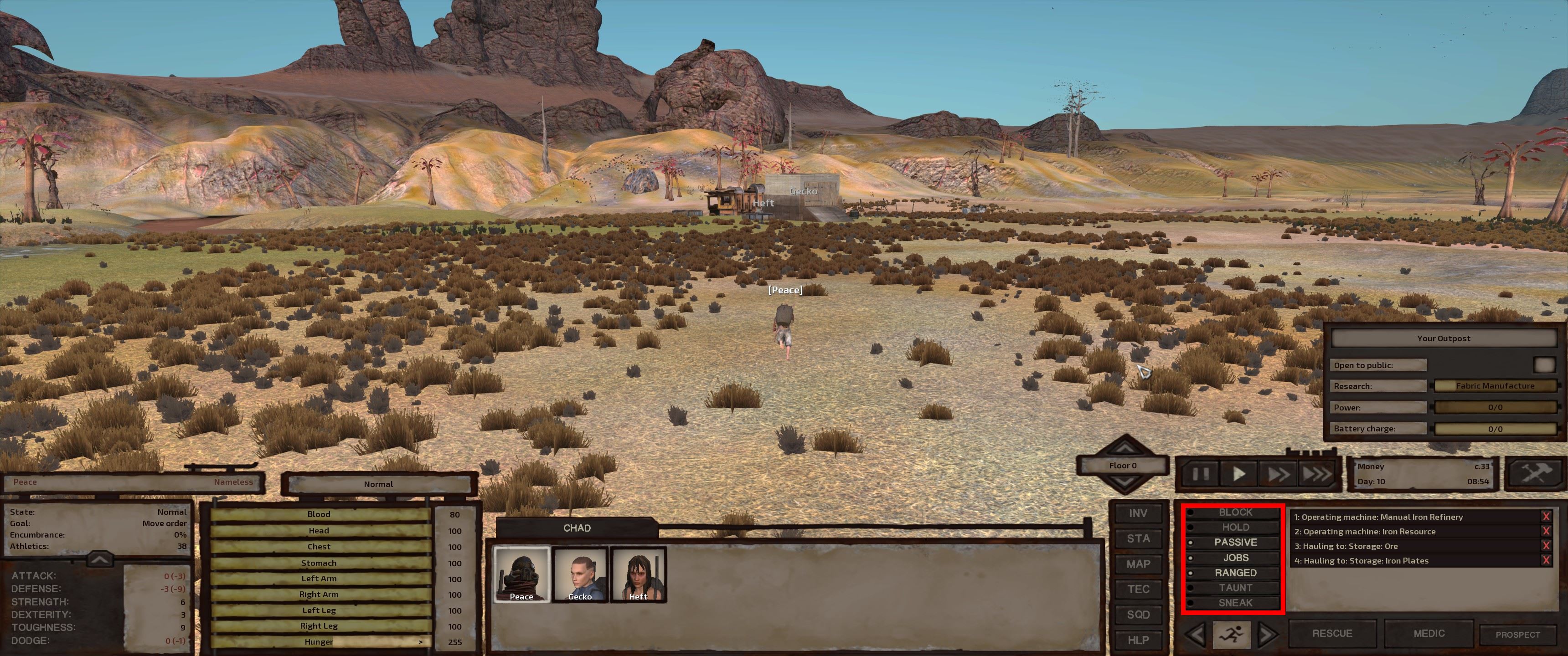
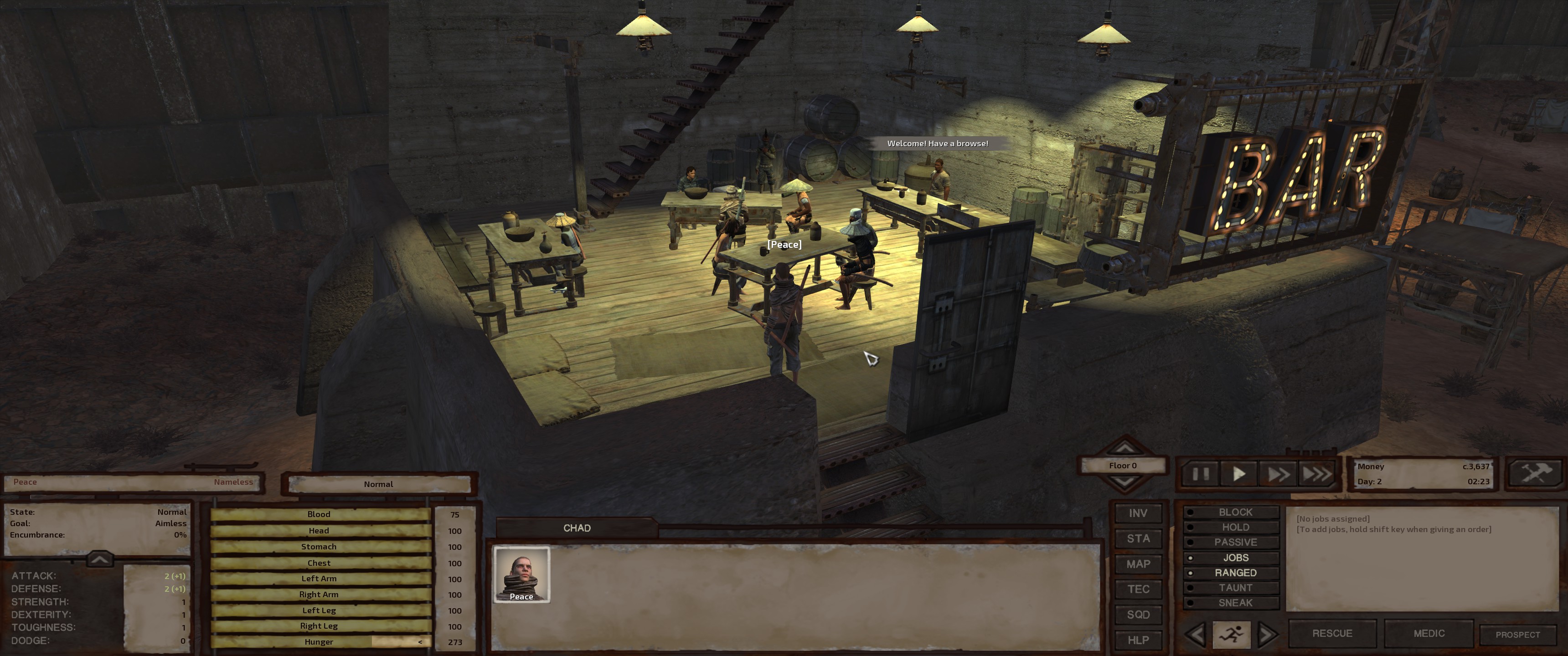
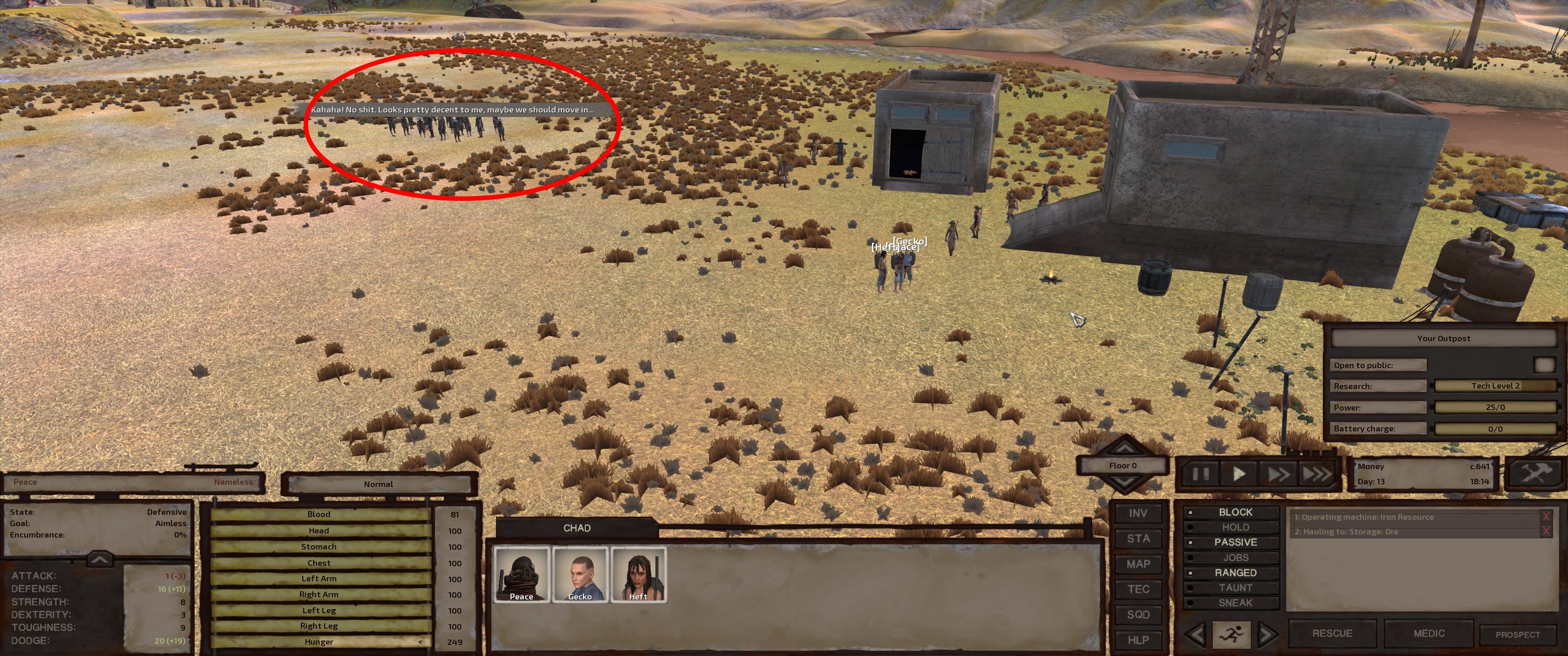
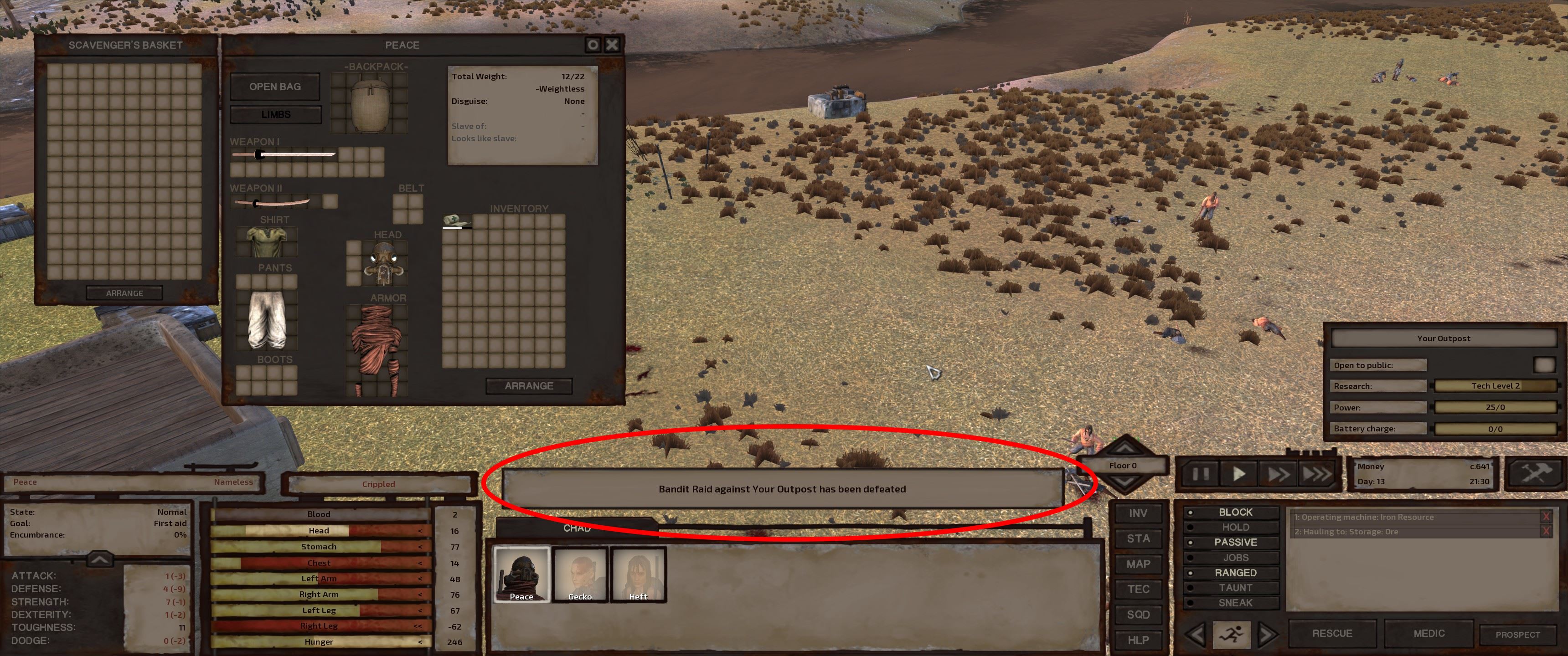
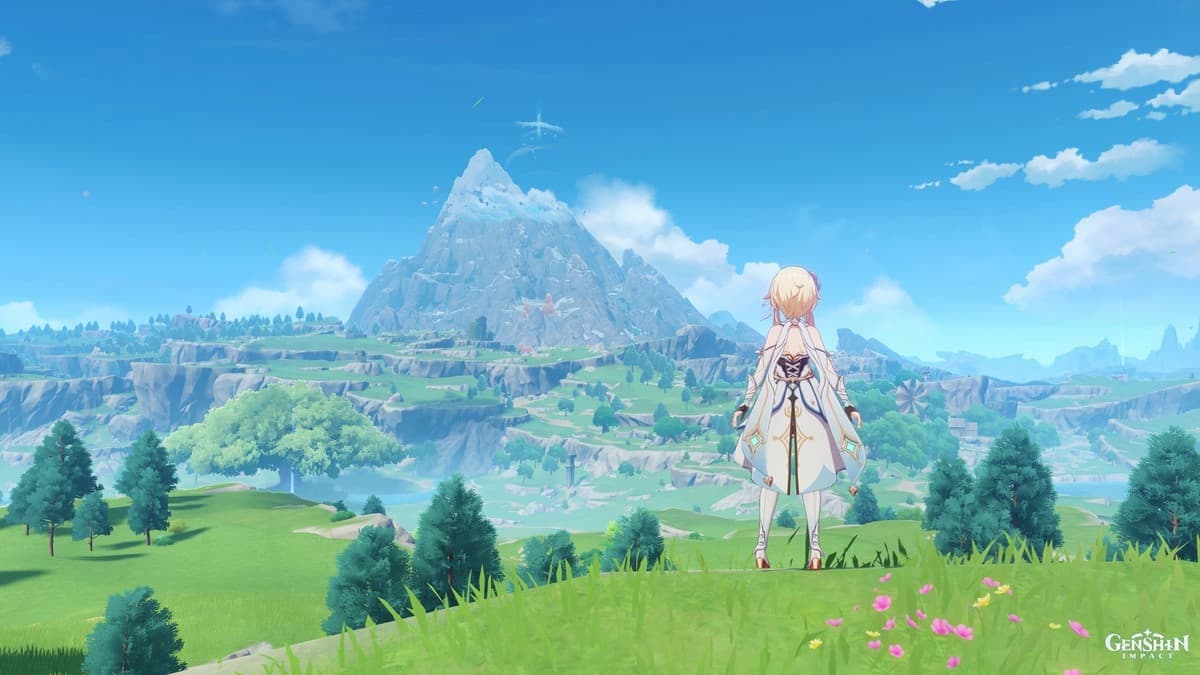
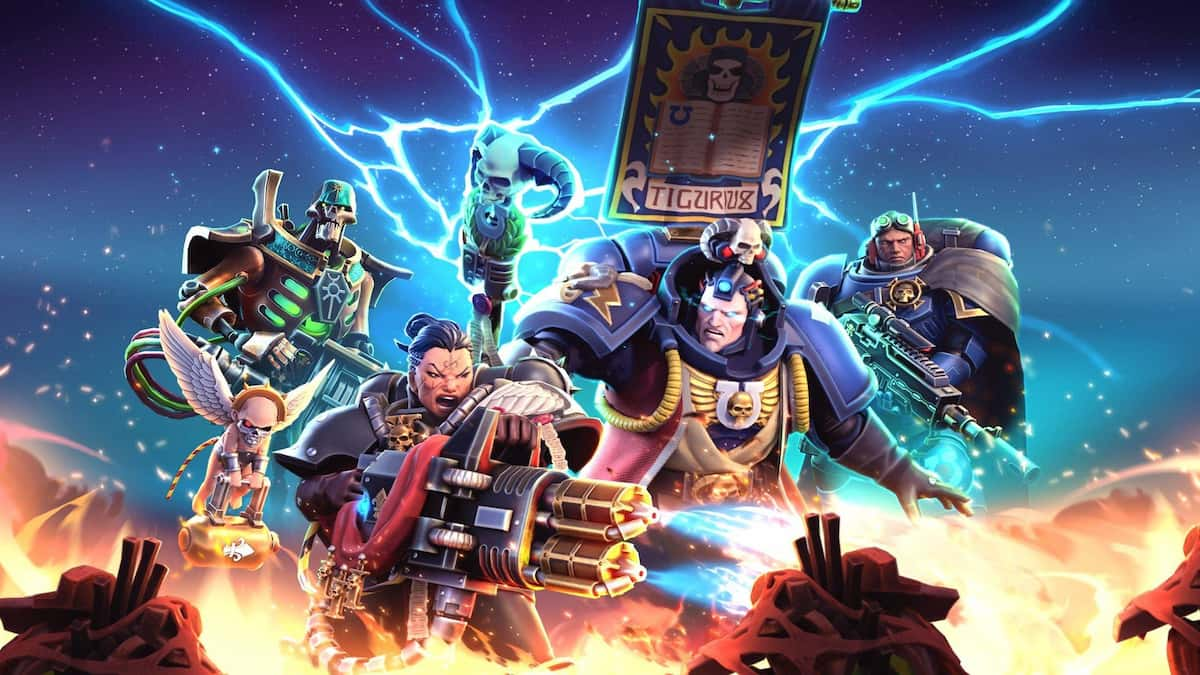
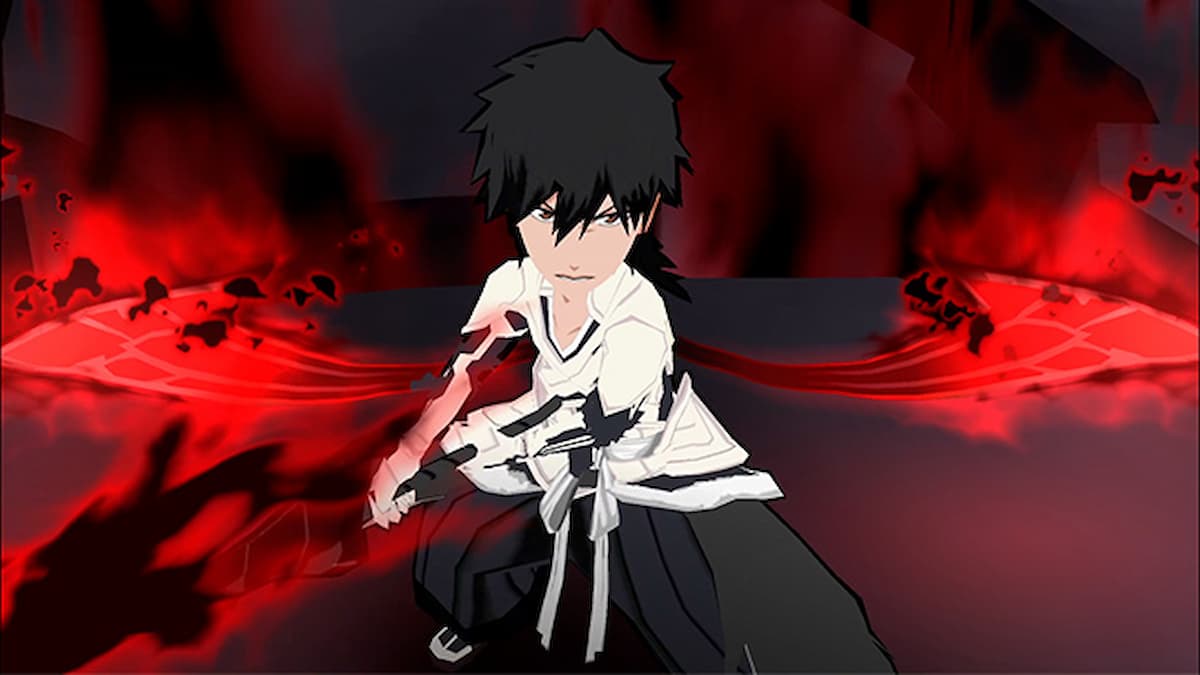


Published: Dec 11, 2018 01:24 am